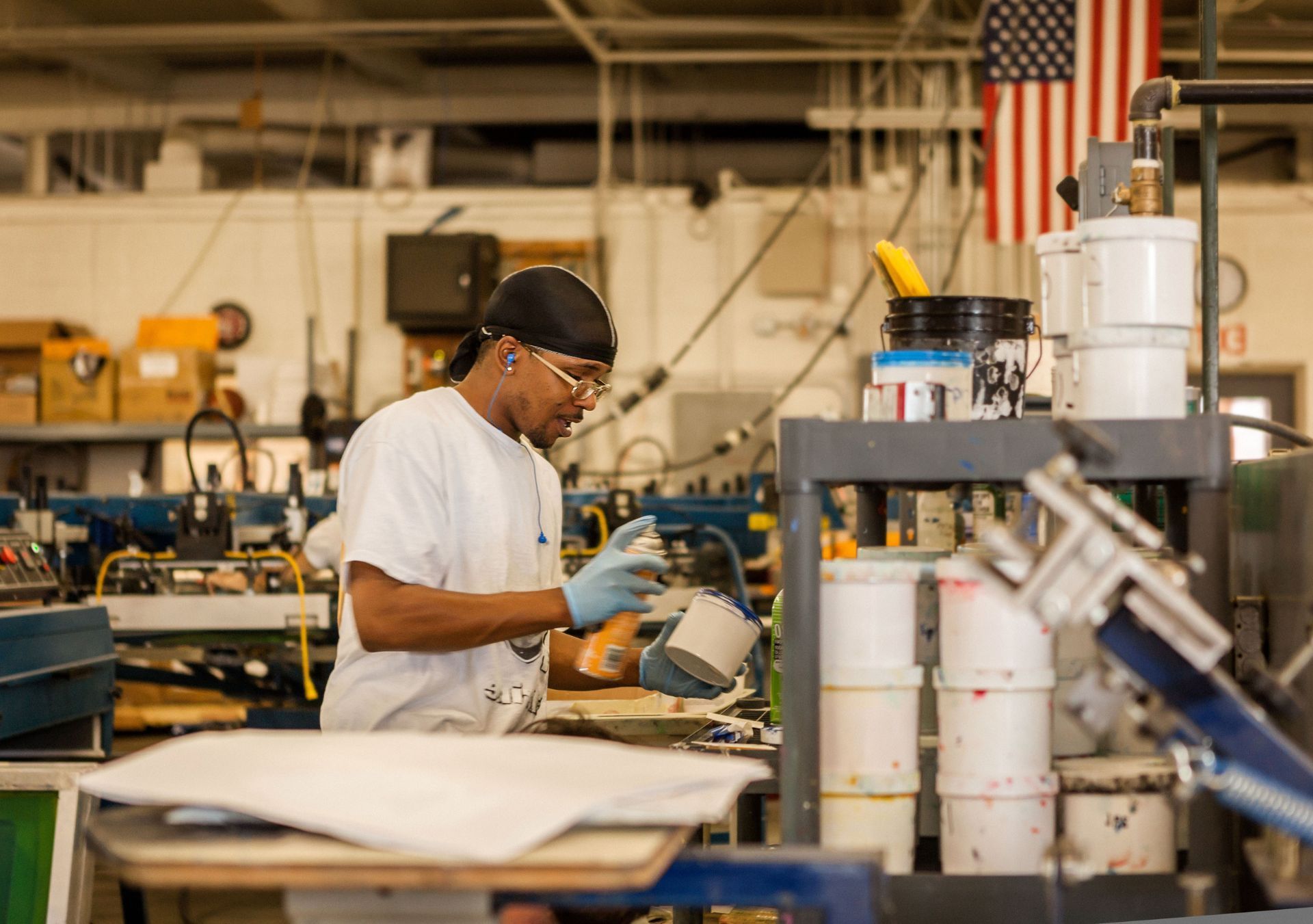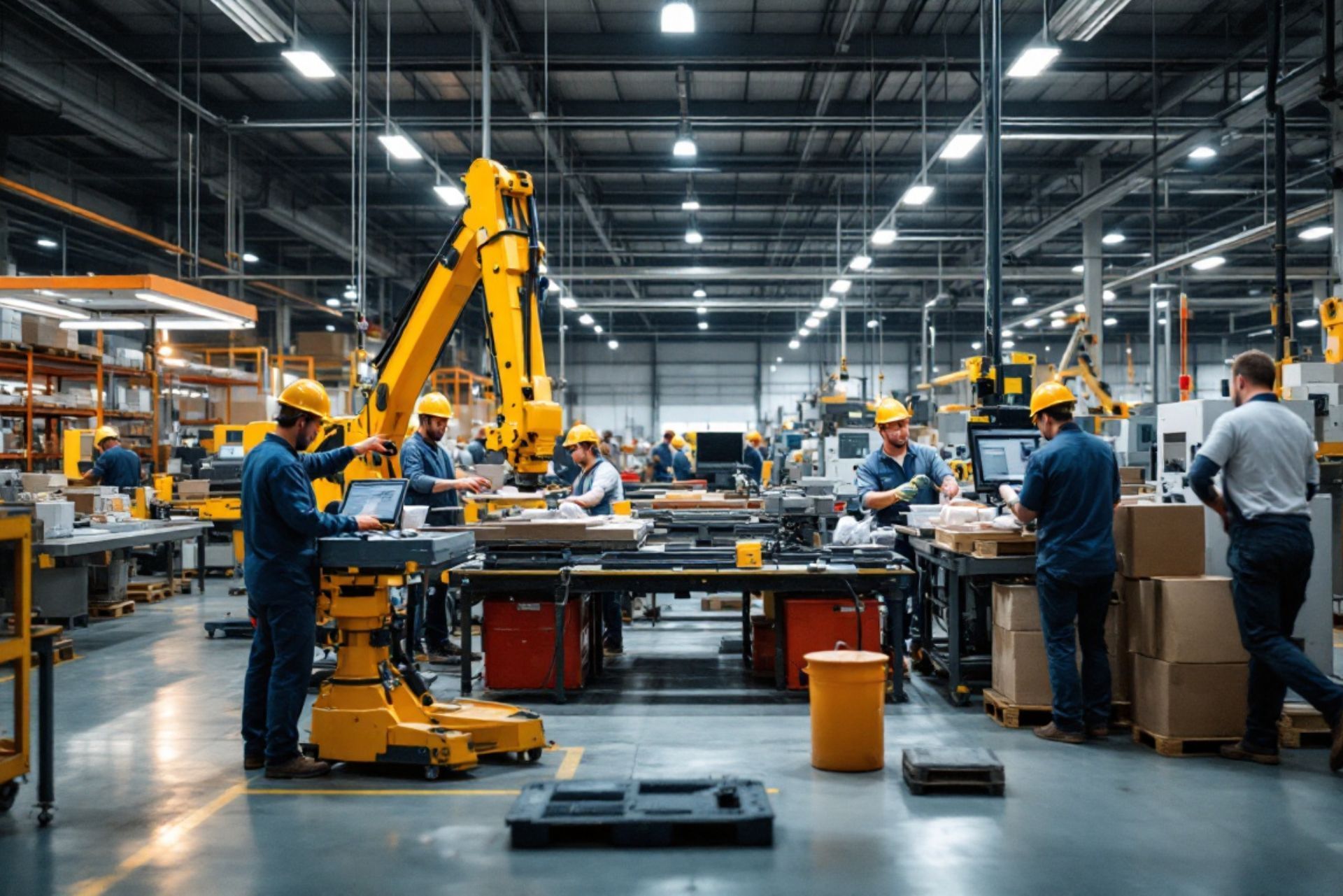
Most Common Business Policies
Index
Understanding Manufacturing Insurance
Types of Manufacturing Insurance Policies
Legal Requirements for Manufacturing Insurance in Arizona
Choosing the Right Insurance Provider
Common Risks Faced by Manufacturers in Arizona
Best Practices for Managing Manufacturing Insurance
Contact Us
Manufacturing is a vital part of Arizona's economy, contributing significantly to job creation and economic growth. However, like any industry, it comes with its own set of risks and challenges. To safeguard against these potential issues, Arizona manufacturers must understand the importance of comprehensive insurance coverage. This article delves into the various aspects of manufacturing insurance in Arizona, including types of coverage, legal requirements, and tips for selecting the right policy.
Understanding Manufacturing Insurance
Manufacturing insurance is designed to protect businesses in the manufacturing sector from various risks, including property damage, liability claims, and employee-related incidents. This type of insurance is crucial for ensuring business continuity and financial stability.
In Arizona, manufacturing businesses face unique challenges due to the state's climate, regulatory environment, and economic landscape. Therefore, understanding the nuances of manufacturing insurance can help business owners make informed decisions about their coverage needs.
Key Components of Manufacturing Insurance
Manufacturing insurance typically includes several key components, which can be tailored to meet the specific needs of a business. These components often encompass:
- Property Insurance: Covers damage to buildings, equipment, and inventory due to events like fire, theft, or natural disasters.
- General Liability Insurance: Protects against claims of bodily injury or property damage caused by the business's operations or products.
- Workers' Compensation Insurance: Provides benefits to employees who suffer work-related injuries or illnesses.
Why Manufacturing Insurance is Essential
Having the right insurance coverage is not just a legal requirement; it is also a strategic business decision. Manufacturing businesses often operate with significant investments in equipment and facilities, making them vulnerable to substantial financial losses in the event of an accident or disaster.
Moreover, clients and partners may require proof of insurance before engaging in business, making it essential for manufacturers to maintain adequate coverage. This not only protects the business but also enhances its credibility and reputation within the industry.
In addition to these fundamental components, many manufacturing businesses may also consider specialized coverages such as product liability insurance, which protects against claims related to defects in manufactured goods. This is particularly important in industries where safety is paramount, such as automotive or food production. Furthermore, as technology evolves, cyber liability insurance is becoming increasingly relevant for manufacturers that rely on digital systems for operations, making them susceptible to data breaches and cyberattacks. By proactively addressing these potential risks through comprehensive insurance solutions, manufacturers can safeguard their assets and ensure long-term viability in a competitive market.
Furthermore, the landscape of manufacturing insurance is continually changing, influenced by factors such as advancements in technology, shifts in regulatory requirements, and emerging risks associated with global supply chains. Manufacturers must stay informed about these trends to adapt their insurance strategies accordingly. Engaging with knowledgeable insurance agents who specialize in manufacturing can provide valuable insights and help businesses navigate the complexities of their insurance needs effectively.

Types of Manufacturing Insurance Policies
Manufacturers in Arizona can choose from various insurance policies, each designed to address specific risks associated with the industry. Understanding these options is crucial for selecting the right coverage.
General Liability Insurance
General liability insurance is a fundamental component of manufacturing insurance. It protects businesses from claims arising from accidents, injuries, or damages that occur on their premises or as a result of their products.
This type of coverage typically includes:
- Bodily injury claims
- Property damage claims
- Personal and advertising injury claims
For manufacturers, this insurance is essential in safeguarding against the financial repercussions of lawsuits and claims, which can be costly and time-consuming to resolve. Furthermore, having general liability insurance can enhance a manufacturer's credibility, as clients and partners often prefer to work with businesses that are adequately insured, reflecting a level of professionalism and responsibility.
Property Insurance
Property insurance covers physical assets, including buildings, machinery, and inventory. For manufacturers, this coverage is critical as it protects against various risks, such as fire, theft, vandalism, and natural disasters.
In Arizona, where extreme weather conditions can occur, having robust property insurance can be a lifesaver for manufacturing businesses. It ensures that, in the event of a loss, the business can recover quickly and continue operations with minimal disruption. Additionally, property insurance can also cover business interruption losses, providing financial support during periods when production is halted, allowing manufacturers to maintain their cash flow and meet financial obligations even when faced with unforeseen circumstances.
Workers' Compensation Insurance
Workers' compensation insurance is mandatory in Arizona for businesses with employees. This coverage provides benefits to workers who are injured or become ill due to their job. It covers medical expenses, rehabilitation costs, and lost wages.
For manufacturers, where the risk of workplace injuries can be higher due to machinery and equipment, having workers' compensation insurance is not just a legal obligation; it is also a way to demonstrate a commitment to employee safety and well-being. Moreover, investing in safety training programs and ergonomic assessments can further reduce the likelihood of workplace injuries, potentially lowering insurance premiums over time. By fostering a culture of safety, manufacturers not only protect their workforce but also enhance productivity and morale, leading to a more resilient and efficient operation.
Legal Requirements for Manufacturing Insurance in Arizona
Understanding the legal requirements surrounding manufacturing insurance in Arizona is crucial for compliance and risk management. The state has specific regulations that businesses must adhere to in order to operate legally. Navigating these requirements can be complex, but it is essential for safeguarding both the business and its employees.
Mandatory Insurance Policies
In Arizona, certain types of insurance are mandatory for manufacturing businesses, including:
- Workers' Compensation Insurance: As mentioned, this is required for all employers with employees. It protects both the employee and the employer. This insurance covers medical expenses and lost wages for employees who are injured on the job, ensuring that they receive the necessary care while also protecting the business from lawsuits related to workplace injuries.
- Commercial Auto Insurance: If a business uses vehicles for operations, commercial auto insurance is necessary to cover any accidents or damages that may occur. This coverage is vital not only for protecting the vehicles but also for ensuring that any liability arising from accidents involving employees driving on behalf of the company is adequately addressed.
Failure to comply with these requirements can result in severe penalties, including fines and legal action, making it essential for manufacturers to stay informed about their obligations. Regularly reviewing insurance policies and staying updated on changes in legislation can help businesses maintain compliance and avoid unnecessary risks.
Industry-Specific Regulations
Beyond general insurance requirements, manufacturers in Arizona may also be subject to industry-specific regulations. For instance, those involved in food production or pharmaceuticals must adhere to strict safety and quality standards, which may necessitate additional insurance coverage. These industries often require liability insurance that covers product recalls, contamination, and other risks unique to their operations.
Understanding these regulations can help manufacturers avoid costly mistakes and ensure they are adequately protected against potential liabilities. Moreover, engaging with local regulatory bodies and industry associations can provide valuable insights into best practices and emerging trends, allowing manufacturers to stay ahead of the curve in compliance and risk management. Additionally, businesses may consider investing in risk assessment tools and training programs for employees to further mitigate risks associated with their specific manufacturing processes.
Choosing the Right Insurance Provider
Selecting the right insurance provider is a critical step in securing adequate coverage for a manufacturing business. The right provider will not only offer the necessary policies but also provide guidance and support throughout the insurance process.
Factors to Consider
When choosing an insurance provider, consider the following factors:
- Experience in the Manufacturing Sector: Look for providers with a proven track record in the manufacturing industry. They will better understand the unique risks and challenges faced by manufacturers.
- Policy Customization: Ensure the provider offers customizable policies that can be tailored to meet the specific needs of your business.
- Customer Service: A responsive and knowledgeable customer service team can make a significant difference when it comes to claims processing and support.
Getting Quotes and Comparing Policies
Once potential providers have been identified, obtaining quotes and comparing policies is essential. This process allows manufacturers to assess coverage options, premiums, and deductibles, ensuring they select the most suitable policy for their needs.
It is advisable to request quotes from multiple providers and carefully review the terms and conditions of each policy. This diligence can lead to significant cost savings and better coverage.
Additionally, it is beneficial to ask for references or case studies from each provider. Understanding how they have handled claims for similar businesses can provide insight into their reliability and effectiveness. Furthermore, consider the financial stability of the insurer, as a company with strong financial health is more likely to fulfill its obligations when claims arise. Resources such as A.M. Best ratings can help gauge the financial strength of an insurance provider, ensuring that your business is in safe hands.
Moreover, take the time to evaluate the provider's claims process. A streamlined and transparent claims process can alleviate stress during challenging times. Look for providers that offer online claims filing and tracking, as these features can significantly enhance efficiency and communication. Engaging with current clients through forums or industry groups can also yield valuable feedback about their experiences, helping you make an informed decision that aligns with your business’s long-term goals.

Common Risks Faced by Manufacturers in Arizona
Manufacturers in Arizona face a variety of risks that can impact their operations and financial stability. Understanding these risks is vital for selecting appropriate insurance coverage.
Natural Disasters
Arizona is prone to natural disasters such as wildfires, floods, and severe storms. These events can cause extensive damage to manufacturing facilities and disrupt operations. The state’s unique climate can lead to sudden and extreme weather changes, making it essential for manufacturers to stay prepared.
Having property insurance that covers natural disasters is essential for manufacturers in the state. This coverage can help businesses recover quickly and minimize losses in the event of a disaster. Additionally, manufacturers should consider implementing disaster preparedness plans, which include regular training for employees and investment in infrastructure that can withstand such events, further enhancing their resilience against natural calamities.
Workplace Injuries
The manufacturing sector often involves heavy machinery and equipment, which can lead to workplace injuries. From slips and falls to machinery-related accidents, the risk of injury is significant. Manufacturers must prioritize safety protocols and invest in training programs to educate employees about the proper use of equipment and safety measures.
Workers' compensation insurance is crucial for protecting both employees and employers. It ensures that injured workers receive the necessary medical care while also shielding the business from potential lawsuits. Furthermore, fostering a culture of safety not only helps in reducing the number of workplace accidents but can also improve employee morale and productivity, creating a more efficient work environment.
Supply Chain Disruptions
Manufacturers rely on a complex network of suppliers and distributors. Disruptions to this supply chain, whether due to economic factors or natural events, can have a cascading effect on production timelines and costs. The recent global events have highlighted the vulnerabilities within supply chains, prompting manufacturers to rethink their strategies and diversify their supplier base.
Insurance policies that cover business interruption can help mitigate the financial impact of supply chain disruptions, allowing manufacturers to navigate challenges more effectively. Additionally, manufacturers should consider investing in technology that enhances supply chain visibility, enabling them to respond swiftly to disruptions and maintain operational continuity. By proactively managing supply chain risks, manufacturers can better position themselves for long-term success in an ever-evolving market landscape.
Best Practices for Managing Manufacturing Insurance
Managing manufacturing insurance effectively involves ongoing assessment and adaptation to changing business needs and risks. Implementing best practices can enhance coverage and ensure adequate protection.
Regular Risk Assessments
Conducting regular risk assessments is essential for identifying potential vulnerabilities within a manufacturing operation. This proactive approach allows businesses to adjust their insurance coverage accordingly.
By evaluating factors such as equipment condition, employee safety protocols, and environmental risks, manufacturers can ensure they are adequately protected against emerging threats. Additionally, leveraging technology, such as data analytics and IoT devices, can provide real-time insights into operational risks, enabling more precise assessments and timely interventions. This technological integration not only enhances the accuracy of risk evaluations but also empowers manufacturers to make informed decisions regarding their insurance needs.
Employee Training and Safety Programs
Investing in employee training and safety programs can significantly reduce the risk of workplace injuries. By fostering a culture of safety, manufacturers not only protect their employees but also minimize insurance claims and premiums.
Regular training sessions and safety drills can keep employees informed about best practices and emergency procedures, ultimately contributing to a safer work environment. Furthermore, incorporating feedback mechanisms where employees can report safety concerns or suggest improvements can enhance engagement and accountability. By actively involving staff in safety initiatives, manufacturers can cultivate a proactive safety culture that not only complies with regulations but also prioritizes the well-being of every team member.
Reviewing Policies Annually
Insurance needs can change over time due to growth, new equipment, or changes in operations. Conducting an annual review of insurance policies ensures that coverage remains relevant and adequate.
Engaging with an insurance advisor during this review can provide valuable insights into potential gaps in coverage and opportunities for cost savings. Additionally, manufacturers should consider exploring new insurance products or endorsements that may better align with their evolving needs. For instance, as sustainability becomes increasingly important, manufacturers might look into policies that cover green technologies or environmentally friendly practices, which can not only protect their investments but also enhance their reputation in the marketplace.
The Future of Manufacturing Insurance in Arizona
The manufacturing industry in Arizona is evolving, driven by technological advancements and changing market demands. As the landscape shifts, so too will the insurance needs of manufacturers.
Impact of Technology
As manufacturers increasingly adopt automation and smart technologies, new risks and liabilities will emerge. Cybersecurity threats, for instance, are becoming a significant concern for manufacturers that rely on interconnected systems.
Insurance providers will need to adapt their offerings to address these evolving risks, potentially introducing new policies focused on cyber liability and technology-related coverage.
Sustainability and Environmental Considerations
With a growing emphasis on sustainability, manufacturers are increasingly focusing on environmentally friendly practices. This shift may lead to new insurance requirements related to environmental liability and compliance with regulations.
Manufacturers that prioritize sustainability may also find opportunities for cost savings through insurance discounts and incentives for implementing eco-friendly practices.
Conclusion
Manufacturing insurance is a critical component of risk management for businesses operating in Arizona. By understanding the various types of coverage available, legal requirements, and best practices for managing insurance, manufacturers can protect their investments and ensure business continuity.
As the manufacturing landscape continues to evolve, staying informed about emerging risks and adapting insurance strategies will be essential for success. With the right coverage in place, manufacturers can focus on growth and innovation, confident in their ability to navigate challenges.
